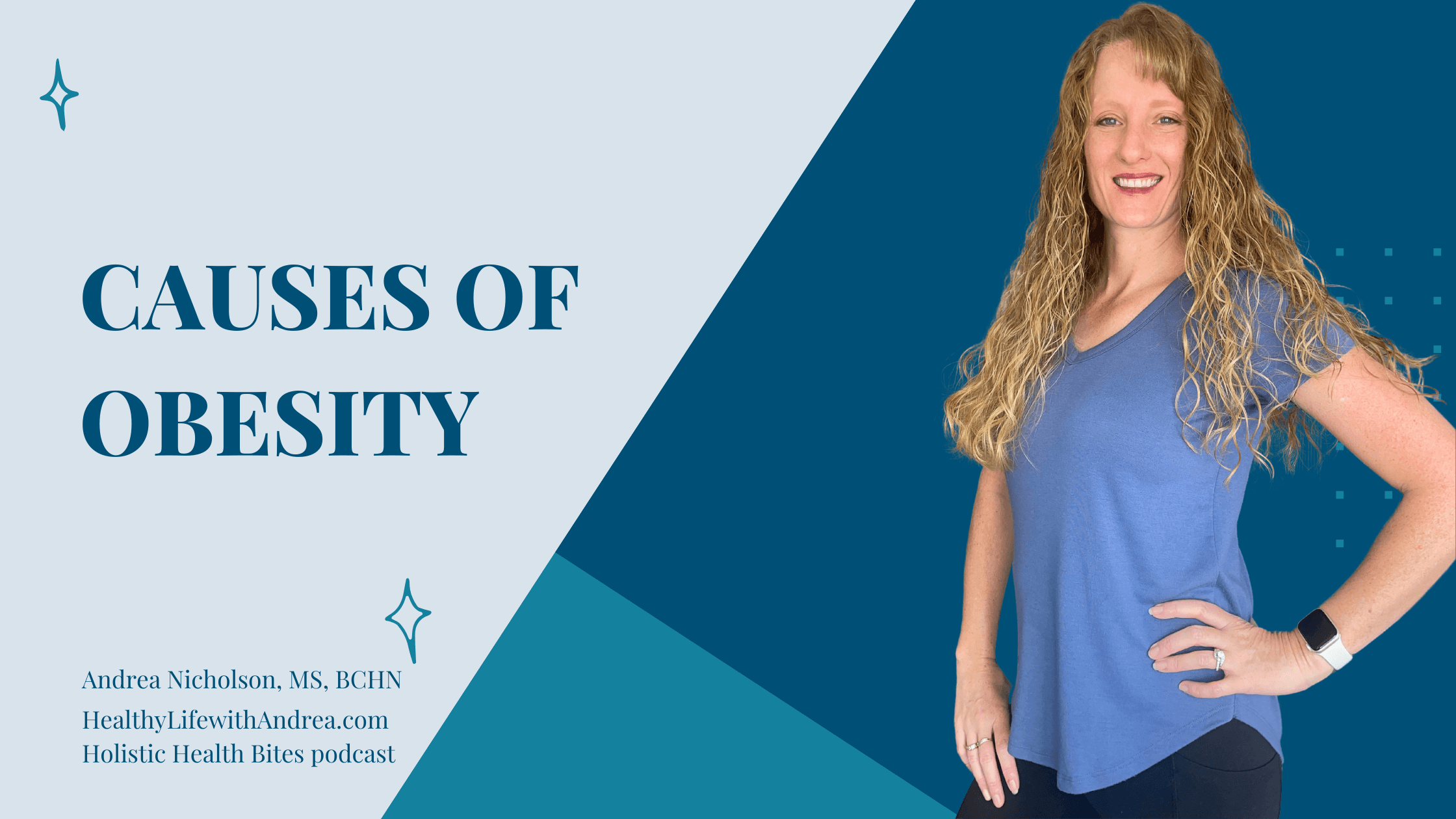
What Causes Obesity?
This is the great debate amongst doctors, dietitians, personal trainers and researchers. The two major models are seemingly at great odds with each other...but could they both be true? Or both be wrong?
EPISODE DETAILS:
What Causes Obesity?
Despite decades of research and hundreds of studies on what causes obesity, there’s still a lot of controversy. If it were really as simple as eating too much and not getting enough exercise, then “Eat less, move more” advice would have worked decades ago on a widespread scale. But with over 40% of the US adult population being obese, then there are two possibilities here - either this advice is correct but no one is following it, or the advice wrong – or at least, not sufficient.
A paper published recently in Nature Metabolism presents two competing hypotheses of obesity. The authors of this paper highlight their similarities and differences in the models, and proposes a different approach for future research. The paper is authored by sixteen researchers and clinicians who work in the field of weight loss research and who see the true causes of obesity differently.
The competing models are the energy balance model (EBM) and the carbohydrate-insulin model (CIM). The energy balance model is essentially boiled down to the calories in versus calories out that we’ve all heard is what drives weight gain or loss. Some do also consider specific macronutrients and hormones, but ultimately excess energy intake results in fat deposition, regardless of the macronutrient composition of the diet. In other words, people with obesity have accumulated excess fat mass because they have taken in excess energy, and the same amount of excess energy would have resulted in an equivalent increase in fat mass regardless of whether those calories came from broccoli or potato chips.
On the other hand, the carbohydrate-insulin model considers the primary cause of obesity is due to the hormonal and metabolic effects that different macronutrients have on the storage or burning of incoming fuel. This model blames refined carbohydrates the most, due to the rise in insulin (and a excessive rise in those with insulin resistance), which signals fat storage rather than fat burning.
Both models acknowledge how hard it is for people to make long term dietary changes when they are constantly surrounded by hyperpalatable, cheap, and common ultra-processed foods. They also both acknowledge the influence of sleep quality, physical activity, environmental factors (such as endocrine-disrupting chemicals), and social factors (e.g., education level, socioeconomic status). But the carbohydrate-insulin model suggests people would see greater benefit if they were told to limit overall carbohydrate intake, especially the consumption of highly refined carbohydrate foods that cause frequent and sustained higher levels of insulin, rather than simply to take in less total food.
The energy balance model claims that the brain loses the ability to control food intake because of the food environment, whereas the carbohydrate-insulin model suggests the brain is fully capable of controlling food intake which they say is why we see reduced energy expenditure (or burning) with reduced energy intake (calories consumed).
The energy balance model says the brain’s ability to sense hunger and fullness has been altered by the modern food environment (there’s a reason you “can’t eat just one!”), whereas the carbohydrate-insulin model says that it’s not that the brain doesn’t properly perceive hunger, it’s that when highly refined carbs trigger the high insulin spike, the energy is pushed into storage (namely storage of fat), rather than burning, leaving low levels of fuel in the blood to be used for energy. This leaves the body feeling hungry, despite being fed (or even overly fed). This is the state of “internal starvation” which is driving the continued drive to eat and therefore overeat, especially on refined carbohydrates.
So you can see, the differences between these two models of obesity are significant. They propose different causes for the fat accumulation. This has major implications for the best, most effective, and long lasting ways to reverse or prevent this, which in turn has implications for public policy, the food industry, and clinical practice.
In my view as a Functional Nutritionist, I think both models can exist on some level together, though I tend far more to the side of the carbohydrate-insulin model. Let me explain a little bit further how I can say that I think both models, that seem diametrically opposed, can be somewhat true. Firstly, I see the benefits for myself and my clients when we focus on eating following the carbohydrate-insulin model - low insulin eating, eating less often, and eliminating refined and simple sugars. Eating in this fashion not only helps reduce body fat and overall unhealthy weight, but also resets appetite, calms the food noise and many people note other benefits like reduced joint pain, fewer headaches, improved physical functioning and strength, increased desire to be active…just to name a few. And we can literally see metabolic benefits on lab testing and with other health biometrics.
So, what about the energy balance model is correct? It is true that overconsumption of food, any food, can cause weight or fat gain. I’ve seen it with clients who have a long history of over-consuming foods for a variety of reasons (past trauma, lack of food availability as a child, eating disorders, lengthy history of ultra processed food consumption, etc. For these clients, it can be a challenge to retrain their brain as to what a normal meal looks like. These quality, nutrient-dense foods take up a whole lot less space on the plate than refined carbohydrates do. So their brain still wants to fill their plate. And most of us are eating mindlessly or have been trained to clean our plates. This can lead to overeating outside of true hunger.
I do also see for those who don’t fully move into consuming whole unprocessed foods, even if they reduce or eliminate refined and simple carbs, they still struggle with food addictions, dysregulated hunger signaling, and a drive to consume more than they otherwise biologically would. I think this is due to other chemical additives in these processed foods. Even the low sugar, carb-free, processed foods can push this drive. This is why I am not a fan of the “keto” treats or any food in the grocery store that is labeled based on a particular diet. These chemicals are powerful - regardless of their sugar or calorie content. This is why we’ve seen time and time again that the low fat snacks (aka SnackWells) didn’t work, the low sugar (aka “keto”) snacks don’t work, and why most of the commercial diet plans with processed packaged foods don’t work long term. They’re all keeping the hunger and addictions alive.
In the end, biochemistry will win this debate. Frankly, I don’t really care what we call the model. What I want is for people to return to eating real, natural whole foods that we’ve eaten for all of human history up until the industrial food revolution that changed us from farming to factories (and even factory farming). If your great grandparents wouldn’t have known what a food was or how it was created, stay away from it. Stick to natural meats, eggs, seafood, and non-starchy vegetables. For the low insulin benefits, avoid grains, sugars, most fruits, legumes, and starches, especially if you have type 2 diabetes, prediabetes, or any insulin resistance condition.




















0 Comments